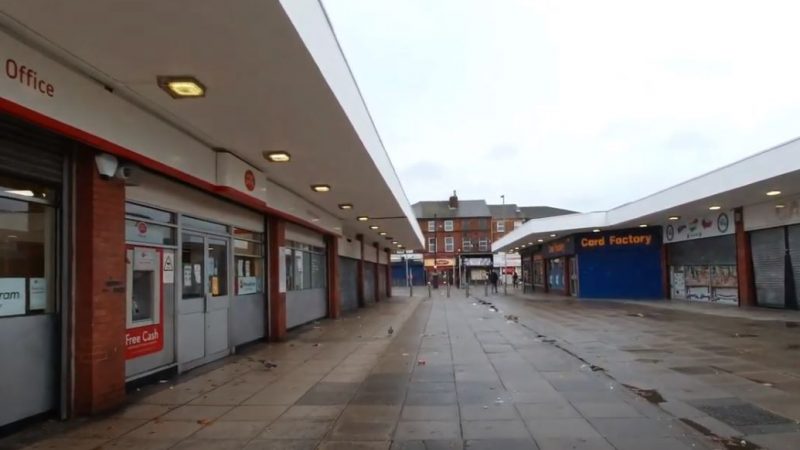Some of the lowest paid local authorities in England are calling on the government to provide a £300m temporary injection to their finances.

Known as F20, the cross-party group is led by Leicestershire County Council. It is urging the Department for Levelling Up, Housing and Communities (DLUHC) to provide an extra £300m to help fund vital services.
As well as Leicestershire, the consortium of local authorities includes York, NE Somerset, Hampshire, Luton, Bath and Warrington.
Councils expected to do more with less
In a letter sent to DLUHC secretary of state, Michael Gove, as well as minister for levelling up and communities, Kemi Badenoch, the group mapped out why additional finding is required.
Among those who penned the letter is Councillor Cathy Mitchell, deputy leader of Warrington Borough Council and cabinet member of finance.
“For too long, councils have been expected to do more, with less – with the lowest-funded councils feeling this pressure most acutely,” wrote Mitchell.
“Without further financial support, councils with the lowest spending power will find it even more challenging to continue providing the services that our residents depend on – and we call on the Secretary of State to provide us with the additional support we so desperately need,” Mitchell added.
‘Comprehensively broken’ local funding model
The group’s calls are based on a report by the Tory think-tank, UK Onward, which was published in September. Onward prides itself on “developing bold and practical ideas for the next generation of centre right thinkers and leaders.”
The report notes how local government funding is “comprehensively broken” and is based on a system that is “outdated, opaque and politically unsustainable.”
The report points to examples of fundamental flaws in local authority funding, including the average council tax per head in London being the lowest in England (£481), despite house prices being much higher in the capital than elsewhere.
Calls for a ‘funding floor’ to be introduced
The report argues that the government needs to introduce a funding floor, to “quickly bring the least well-resourced local authorities up to a respectable level.”
“If a funding floor were set at 90% of the average core spending power of local authorities, the estimated costs would be around £300 million a year, with around 30 poorer local authorities mainly based in the Midlands and the North of England benefiting from the change,” states the report.
Momentum is building
Nick Rushton, leaders of Leicestershire County Council, says “momentum is building” amongst council across the country in the bid for a “levelling up” funding injection.
Referring to the UK Onward report, the group’s short-term solution is to have an additional £300 million pumped into local funding, which would benefit F20 councils battling with low levels of spending compared to authorities that are more generously funded.
“Without additional financial support, those authorities with low core spending power increasingly will struggle to provide essential and valued services to their local communities. A temporary solution isn’t ideal, but it offers to achieve a quick and relatively cheap solution to put our low funded councils on a more sustainable footing.
“And with the local government finance settlement on the horizon, it’s the perfect time to talk about what’s required to level up local government funding,” said Rushton.
Ministers planning ‘sweeping changes’ to local government
Concurring with the escalating F20 movement is news that ministers are planning making sweeping changes to local government as part of its “levelling up” agenda.
A draft levelling up white paper, seen by The Independent, reveals plans to replace local government with a single-tier mayoral system that is based on a model of a directly elected leader “over a well-defined economic geography.”
Under the current system, there are two tiers of local government – county and district. Both share responsibility for council services.
However, the government’s plans are already facing a backlash, with warnings made that it will be a waste of money on “unnecessary bureaucracy”, which would be better spent on going directly to areas that need it the most.
Austerity has crippled council budgets
Councils’ lack of money has been laid bare in the wake of the Covid-19 pandemic, which followed years of austerity that has left many local authorities millions short on budgets.
In Liverpool, for example, deputy mayor Jane Corbett says she needs to find £34m of saving before next March’s deadline to present a balanced budget.
“We are living on parcels of money from the government, and while we are grateful for the support we have had through the pandemic, our budgets for adult social care and children’s social care just cannot cope with rising demand,” says Corbett.
Similar stories are found in councils up and down the country. Lancashire council, for instance, launched a search for making £43m in savings. Thurrock in Essex, a Conservative-run unitary authority, is looking to cut one in four jobs and sell assets, including the local theatre, in a bid to save £34m by 2024.
Biggest losers of austerity
Earlier this year, a report released by the Institute for Fiscal Studies, showed that local councils were the biggest losers from the government’s ongoing austerity measures.
From 2010 to 2020, local councils have suffered a budget cut of 40% once inflation was considered.
Such is the level of desperation and inequity among councils in England that some have had to take the desperate measure of joining a cross-party consortium essentially pleading the government for a “levelling up fix.”
Gabrielle Pickard-Whitehead is a freelance journalist and contributing editor to Left Foot Forward.
To reach hundreds of thousands of new readers we need to grow our donor base substantially.
That's why in 2024, we are seeking to generate 150 additional regular donors to support Left Foot Forward's work.
We still need another 117 people to donate to hit the target. You can help. Donate today.



